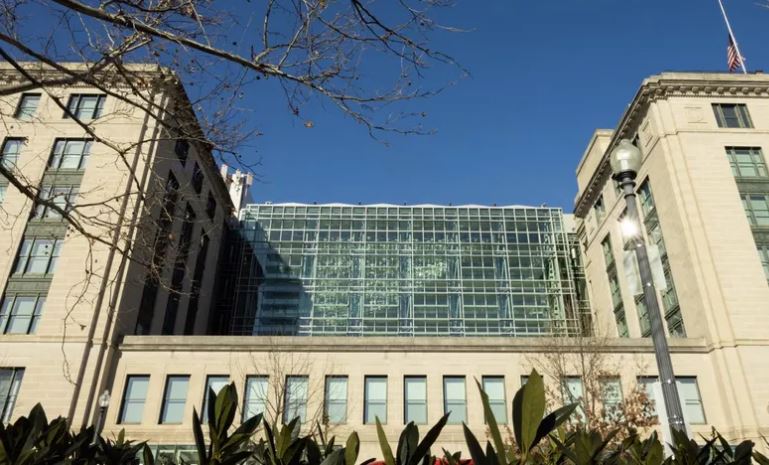Published by REALTOR.com | January 21, 2025
The Trump administration is considering selling two-thirds of the federal government’s office stock.
Shortly before he was elected president in 2016, Donald Trump took a break from campaigning to attend a ceremony for his new flagship hotel, the Trump International Hotel Washington, D.C.
The General Services Administration, the federal agency that owns, manages and leases much of the government’s real estate, had previously awarded Trump the rights to redevelop the government-owned Old Post Office as a luxury hotel. The GSA selected him over Hilton, Marriott International and other big-name operators.
Just before cutting the ribbon on the hotel’s opening day, Trump took a moment to praise the agency.
“The GSA people are amazing professionals,” he said.
Since then, Trump has soured on the GSA. That change of heart could soon accelerate a shake-up already under way in the federal government’s real-estate portfolio.
The GSA manages a massive portfolio of federal buildings, consisting of 370 million square feet nationwide. But many have been poorly maintained due to lack of funding, and are sitting empty or underused, the GSA testified before Congress in 2023.
The Trump administration is considering selling two-thirds of the federal government’s office stock to the private sector, according to people familiar with the transition operations.
About three-quarters of the 70 million square feet of office space the GSA leases from private landlords in D.C. is also likely to be canceled, according to Don Peebles, a longtime Washington, D.C.-based developer. A sharp rise in GSA canceled leases would pressure D.C. landlords, many of which count on the GSA as an anchor tenant.
A GSA spokeswoman said: “GSA continues to work to right-size the federal portfolio, and is committed to optimizing space in federal buildings.” GSA could further accelerate these efforts with funding from Congress, she added.
The GSA has also been working to reduce the real estate it owns as more of its buildings deteriorate from a lack of maintenance. But it is hardly an easy task. Before auctioning off any properties, the GSA must typically make them available free or at a reduced cost to government entities. Ultimately the agency doesn’t keep the profits of the sales.
Much of what it can sell, Peebles said, will likely be at fire-sale prices. That could drag down the worth of other D.C. office buildings, which have already plunged in value in recent years.
“Buildings will sell for 30 cents on the dollar,” Peebles said. “It’s a paradigm shift. There will be a dramatic reset on property values.”
Trump and the GSA have a long, intertwined history.


